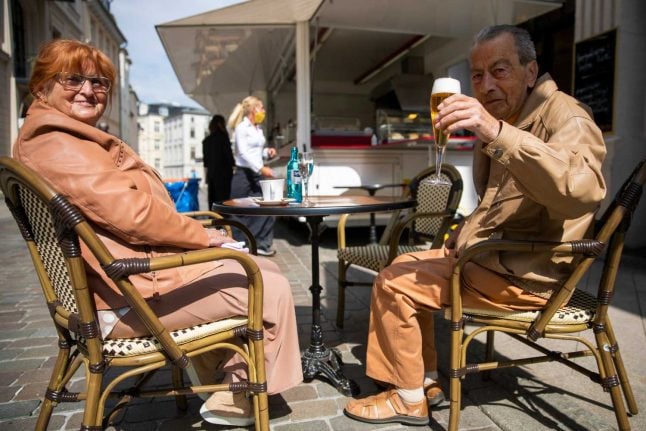Many locals in Mecklenburg-Western Pomerania took advantage of the looser rules and sunny weather to flock to their favourite eateries and cafes for the first time since mid-March.
For the hospitality sector, the restart hasn't come a moment too soon.
“Economically, it has been a disaster for us,” said Thomas Hildebrand, manager of Cafe Prag in the state's picturesque capital of Schwerin.
The northeastern state on the Baltic coast has Germany's lowest coronavirus infection numbers, emboldening the local government to relax many lockdown measures.
While Mecklenburg-Western Pomerania was the first to take the plunge, restaurants, cafes and hotels are set to reopen across Germany in the coming days and weeks as the spread of the virus slows. But dining experiences will be different in the age of corona.
“Our employees must wear masks and our customers must respect social distancing,” Hildebrand told AFP, his own mask hanging around his neck.
Staff are also following other hygiene rules “such as disinfecting tables, no common usage of certain utensils”, he said.
“We're trying to put this in place, it's new for us. But we are happy to be able to reopen.”
Under Germany's federal system, each of its 16 states makes its own decisions on how to emerge from lockdown. Chancellor Angela Merkel last week said Germany had passed “the very first phase of the pandemic”, allowing for a gradual return to normality.
Most shops are already open again, and children are slowly returning to classrooms. Even Bundesliga football matches are set to resume.
'Too fast'
In Ruderhaus restaurant in Schwerin, staff in black masks took orders from customers seated on a waterside terrace with a view of a medieval castle.
Robert, 38, said he was happy he could enjoy an outdoor meal on a balmy Saturday, but admitted he was concerned about the speed at which Germany was easing the confinement measures.
“For me, this de-confinement is going too fast. We should have waited another two or three weeks.” His dining companion Anna, 33, was more relaxed.
“Mecklenburg-Western Pomerania is a very large state and everything is far away. Personally, I am not afraid of catching the virus.”
Many experts have cautioned that moving too quickly could lead to a second wave of COVID-19 cases.
Aware of the risks, German authorities have agreed to reimpose restrictions locally if an area has more than 50 new infections per 100,000 residents over a week. Three districts have already breached the threshold in recent days.



 Please whitelist us to continue reading.
Please whitelist us to continue reading.
A good piece but, to the best of my knowledge, no medieval castle is in Schwerin. The Romantic Schloß Schwerin is 19th century.